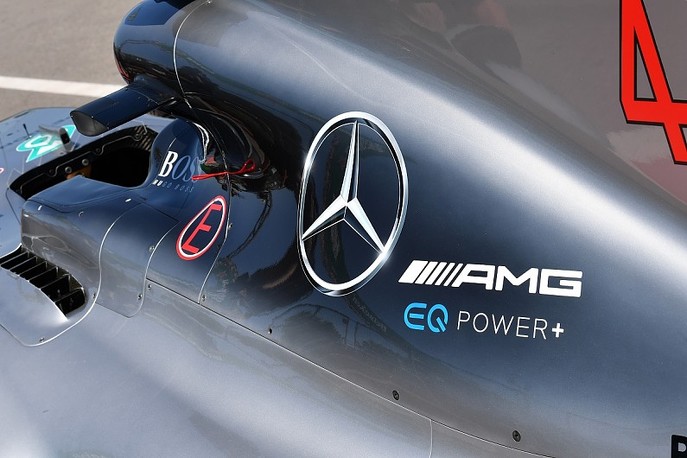Mercedes F1 engine hits 'remarkable' efficiency target on dyno

Mercedes' Formula 1 engine has hit a landmark achievement on the dyno at the team's Brixworth factory after breaking the 50% thermal efficiency barrier for the first time.
The German car manufacturer's progress is thought to have made its M08 EQ Power+ the most efficient ever racing engine, and one of the most efficient in the world.
Thermal efficiency has become a key focus for modern engine builders, and is calculated on the amount of useful energy that can be produced from a given amount of heat input.

In F1's turbo-hybrid era it has become particularly important because of the strict fuel-flow limit rate of 100kg/hour.
It is now approaching levels of thermal efficiency reached by diesel engines used in large container ships, although gas turbines can deliver more than 60% efficiency.
The 50% mark, which has not yet been reached on track, is much higher than a reported 29% efficiency peak that old normally-aspirated V8 engines produced.
Mercedes' first turbo-hybrid engine, which ran in 2014, had an efficiency rate of 44% and the 2017 unit allegedly produces 109bhp more using the same amount of fuel.
A column celebrating the achievement on Mercedes' official website said "the last time we saw these levels of power in Formula 1 was back in 2005, with a V10 that guzzled fuel at a whopping 194kg/hr" - almost double the fuel-flow rate.
Mercedes described the achievement of producing more power than waste energy as "a remarkable milestone for any hybrid, and especially a flat-out racing engine".
It has used a version of its F1 engine in its new Project ONE road car, which has a thermal efficiency of 40%.
Zdroj: autosport.com
Diskusia k článku
Najnovšie galérie
































 Hamed
Hamed 
 Kristian
Kristian 
 Sandra
Sandra 
 Alister
Alister  Jani
Jani